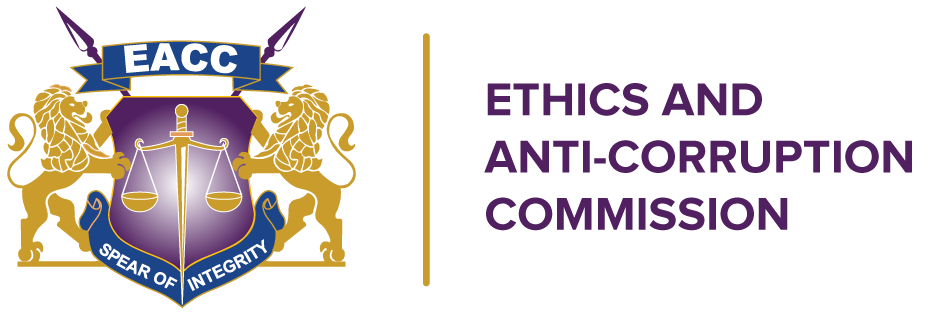Kisii County Assembly Officer arraigned over forged documents
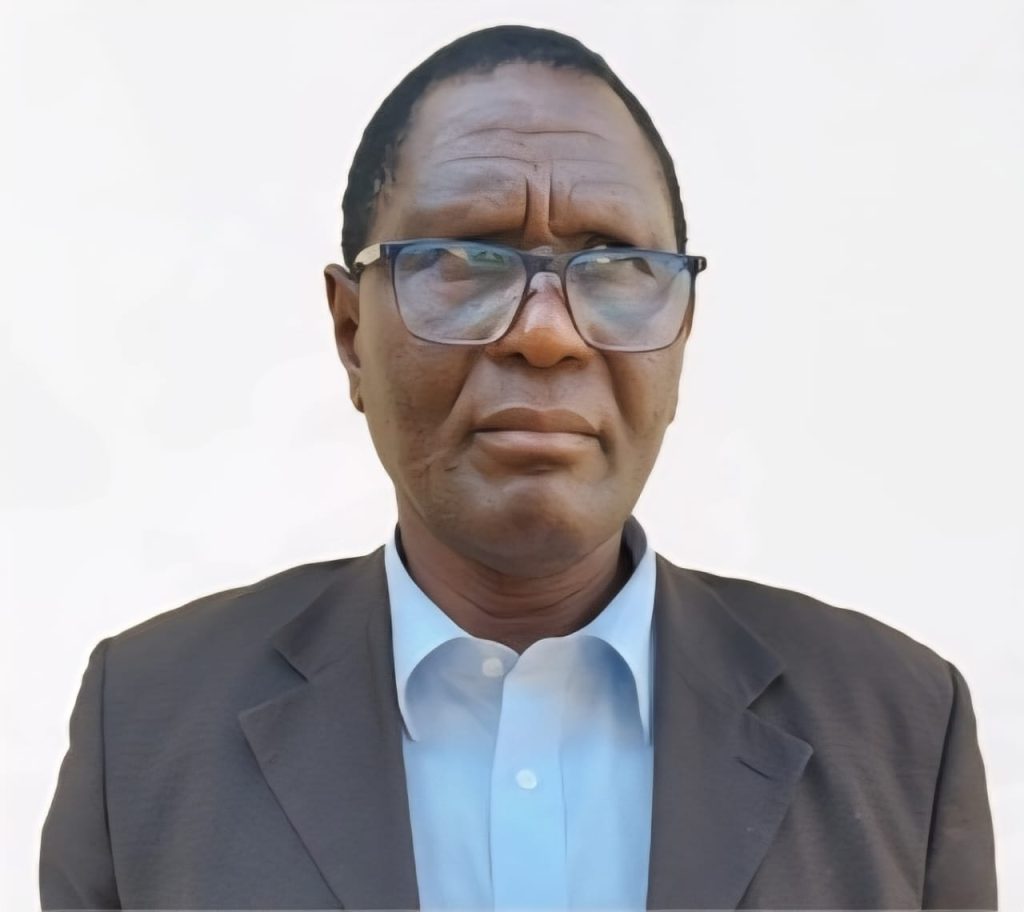
David Geoffrey Ombiro, an Administrative Officer at the Kisii County Assembly, was on September 10th arraigned before the Kisii Anti-Corruption Court on multiple charges related to forgery and deception in securing public employment. Mr. Ombiro pleaded not guilty to all charges, including deceiving a principal, forgery, and uttering a false document. He was released on a bond of Kes150, 000 with one surety of a similar amount, or a cash bail of Kes70,000. The court scheduled a pre-trial conference for September 25th, 2025. The charges stem from a probe conducted by the Ethics and Anti-Corruption Commission (EACC), which established that Mr. Ombiro altered his birth certificate to change his year of birth from 1967 to 1973. He is said to have used the forged certificate to obtain a National Identity Card bearing the falsified information. According to investigations, the suspect also forged a Kenya Revenue Authority (KRA) Personal Identification Number, a National Hospital Insurance Fund (NHIF) card, and a National Social Security Fund (NSSF) card, aligning them with his altered identity. These documents were subsequently submitted to the Kisii County Assembly as part of his employment documentation. Following the investigation, the EACC forwarded the case file to the Director of Public Prosecutions (DPP), who approved the charges. He faced a total of 11 counts, including one count of deceiving a principal, five counts of forgery, and another five counts of uttering a false document. Mr. Ombiro was arrested onSeptember 9th, 2025, processed at the EACC’s South Nyanza Regional Office, and detained overnight at Kisii Central Police Station ahead of his arraignment.
EACC, World Bank discuss joint action on money laundering and asset recovery
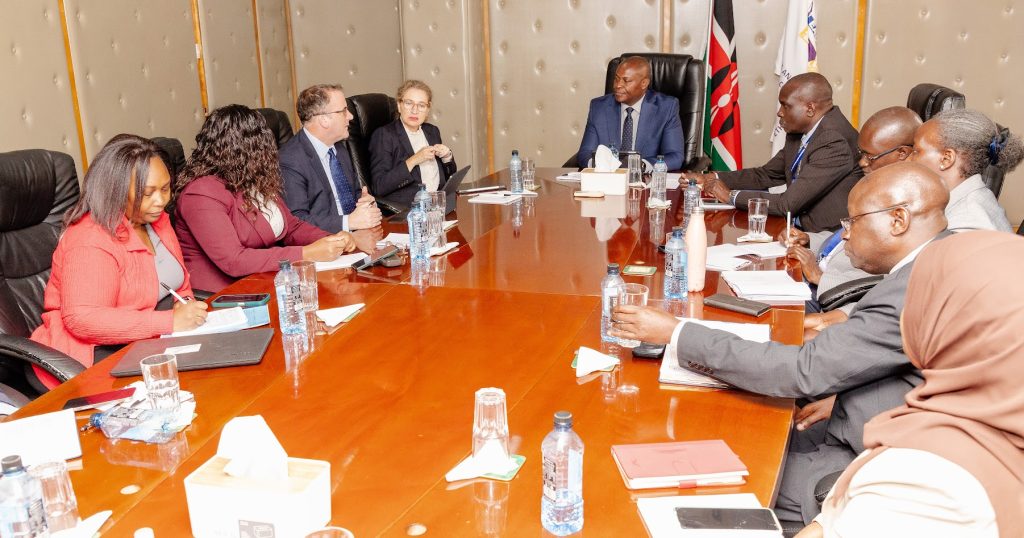
16:09:2025: The Ethics and Anti-Corruption Commission (EACC) has hosted a high-level delegation from the World Bank for strategic discussions aimed at strengthening collaboration in the fight against corruption and economic crimes. The September 11th meeting, held at EACC headquarters, focused on enhancing inter-agency cooperation, particularly in addressing illicit financial flows, money laundering, and the recovery of stolen assets. Speaking during the engagement, EACC’s Director of Field Services, Mr. Jackson Mue, emphasized the importance of joint efforts in tackling complex financial crimes. “This engagement offers a critical platform for reinforcing inter-agency collaboration in combating illicit financial flows and ensuring accountability in the management of public resources,” said Mr. Mue. The World Bank delegation was led by Ms. Yara Esquivel Soto, Senior Financial Sector Specialist, who reaffirmed the Bank’s commitment to supporting institutional capacity building. Ms. Soto commended EACC’s ongoing efforts in investigating and monitoring capital-intensive projects and extended an invitation for the Commission to join the Global Forum for Asset Recovery (GFAR) under the World Bank’s Stolen Asset Recovery (StAR) initiative. The StAR program supports countries in identifying and recovering stolen assets held in foreign jurisdictions, a key priority in global anti-corruption efforts. EACC reiterated its commitment to building robust local and international partnerships in the ongoing fight against corruption, economic crimes, and illicit financial activities.
Kenya deepens anti-corruption ties with OECD in high-level Nairobi meeting

16:09:2025: The Ethics and Anti-Corruption Commission (EACC) hosted a high-level delegation from the Organisation for Economic Co-operation and Development (OECD) on September 9th at the Integrity Centre in Nairobi, marking a significant step forward in Kenya’s efforts to combat corruption and align with global anti-bribery standards. The OECD team, led by Mr. Carlos Conde, Head of the Middle East and Africa Division, was received by EACC Chairperson Dr. David Oginde and Ms. Joyce Munene, Head of the Kenya Leadership Integrity Forum (KLIF) Secretariat. The meeting focused on strengthening collaboration in the fight against bribery and corruption, with particular emphasis on implementing the OECD Anti-Bribery Convention — a key international instrument targeting the supply side of bribery in international business transactions. Dr. Oginde reaffirmed Kenya’s commitment to global anti-corruption efforts, stating that the Commission is actively supporting institutions in developing policies that align with the Anti-Bribery Act. “The Act prohibits the offering, giving, or accepting of bribes. Companies — whether local or foreign — that are convicted of bribery offenses face the risk of blacklisting and being barred from engaging in government contracts,” he said. In his remarks, Mr. Conde highlighted the crucial role of good governance in fostering dignity, economic growth, and sustainable development. He noted that Kenya has expressed a strong interest in joining the OECD framework, with advanced discussions currently ongoing between the OECD and the National Treasury. “The OECD serves as a global forum and knowledge hub, helping countries shape better policies through internationally recognized standards, peer learning, and evidence-based analysis,” Mr. Conde said. The session concluded with the identification of several strategic areas for collaboration, paving the way for enhanced cooperation between Kenya and the OECD in strengthening integrity systems, promoting transparency, and combating bribery across sectors.
Bomet Governor Hillary Barchok Arraigned on Corruption and Money Laundering
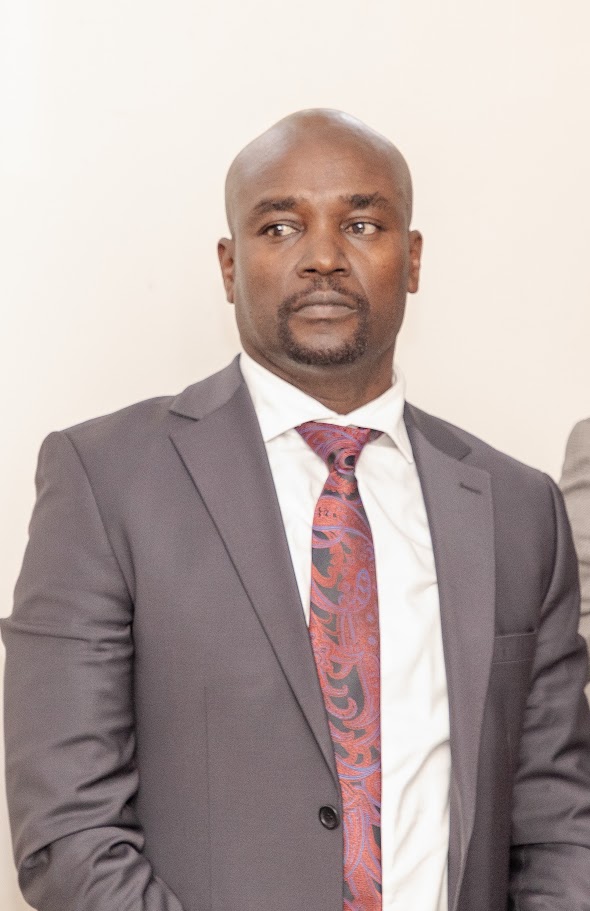
03:09:2025: Bomet County Governor Hillary Kipng’eno Barchok was on Tuesday arraigned before the Milimani Anti-Corruption Court to face multiple corruption-related charges, including conflict of interest, acquisition of proceeds of crime, and money laundering. The Governor surrendered late Monday at the Integrity Centre, EACC’s Headquarters in Nairobi. This followed a summons by the Commission, which required them to appear for processing and arraignment following investigations into the embezzlement of public funds. Appearing alongside his co-accused, Evans Kipkoech Korir, the Governor was formally charged before Chief Magistrate Zipporah Gichana. The charges stem from a series of transactions involving the award of tenders to Chemasus Construction Limited by the Bomet County Government. Governor Barchok faced seven counts in total. In the first charge, the prosecution alleged that between November 14, 2020, and March 10, 2021, he knowingly acquired an indirect private interest worth Kes2 million in tenders awarded to Chemasus Construction for the routine maintenance of the Kimenderit–Kotoibek–Olbutyo Bridge road and the hire of a grader. The second count accused Barchok of acquiring proceeds of crime. It is alleged that on March 10, 2021, he irregularly received Kes2 million from Chemasus Construction Limited, a payment said to be linked to the award of the aforementioned tenders. Further charges involved suspicious financial transactions conducted through the Governor’s personal Equity Bank accounts. Prosecutors claim that the funds—believed to be proceeds of crime—were later transferred to third-party accounts in an apparent attempt to obscure their origin. In the seventh and final count, Governor Barchok, Evans Kipkoech Korir, and his company, Chemasus Construction Limited, were jointly charged with money laundering. The prosecution alleges the accused parties knowingly engaged in the transfer of Kes2 million to conceal the source of the funds. All accused persons denied the charges. The Court granted Governor Barchok a bond of Kes15 million or a cash bail of Kes5 million. His co-accused, including Korir and Chemasus Construction Limited, were each granted bond terms of Kes5 million or a cash bail of Kes2 million. While the prosecution did not oppose bail, it urged the Court to impose strict conditions to ensure the integrity of the judicial process is maintained. The case is scheduled for mention on September 17, 2025, when the Court is expected to issue further directions.
Former Governor Wangamati Pleads Not Guilty in Kes31.8M Corruption Charges
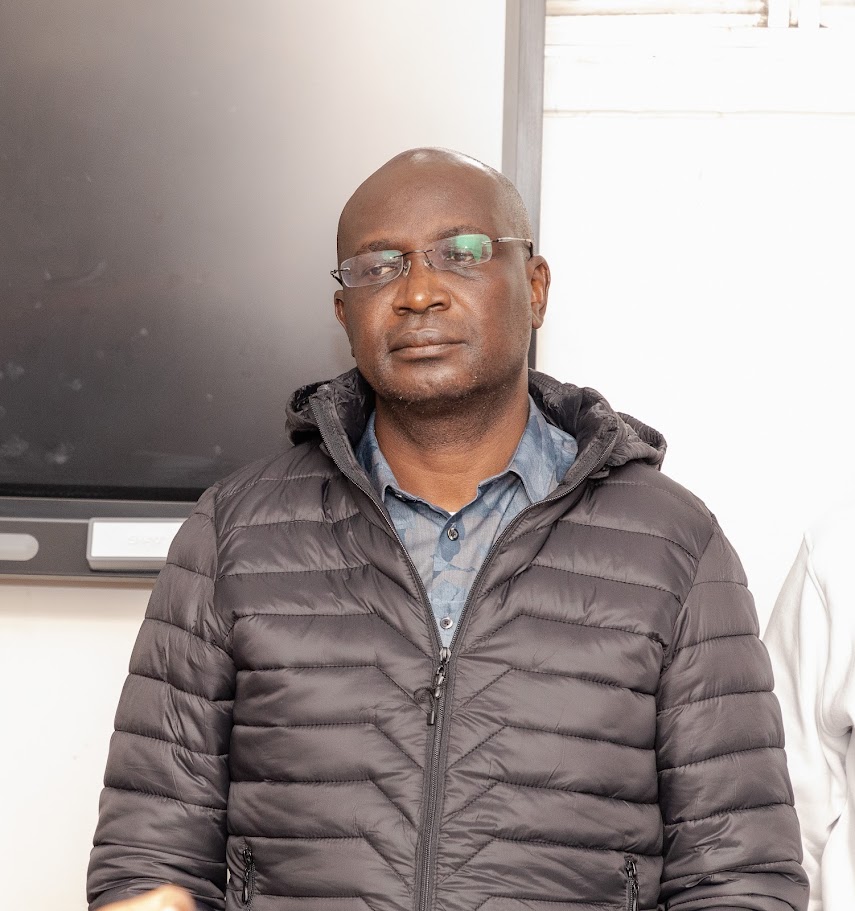
02:09:2025: Former Bungoma Governor Wycliffe Wafula Wangamati has pleaded not guilty to multiple charges of corruption and conflict of interest involving more than Kes31 million in alleged kickbacks from construction companies that received tenders from the county government during his administration. Appearing before Principal Magistrate Zipporah Gichana at the Anti-Corruption Court in Milimani, Wangamati was charged with four counts of conflict of interest. The charges accuse him of using his influence as governor to improperly benefit from payments made by the Bungoma County Government to companies involved in road and infrastructure projects. At the centre of the allegations is Nabwala Construction Limited—a company owned by Wangamati’s brothers, Michael Simiyu Wangamati and Edward Barasa Wangamati—which allegedly acted as a conduit for the kickbacks. In one of the key charges, Wangamati is accused of receiving Kes10.5 million between May 2020 and June 2021 from Nabwala Construction Limited. The funds were allegedly part of the payments made by the County to Valerie Construction for maintenance works on Chebus–Kimama Road, roads in East Sangalo Ward, and the Minata–Malaha Road. In a separate count, he is alleged to have received Kes5.43 million between July 2020 and September 2021, also from Nabwala Construction, following county payments to Mundesi Contractors Ltd for roadworks in Bukembe West Ward and improvements on the Trans West–Wambu Road. The third charge accuses him of receiving Kes9.35 million from the same company, sourced from payments to Kelco Builders Ltd for maintenance work on Matis–Omindo Road and roads in Misikhu Ward. The final charge alleges that Wangamati received Kes6.5 million connected to a tender awarded to Fastec Suppliers Ltd for the construction of the Kiamama Water Supply Bridge at Chesikaki. Mr. Wangamati and some of his co-accused surrendered early yesterday at the Integrity Centre, EACC’s Headquarters in Nairobi. This followed a summons by the Commission, which required them to appear for processing and arraignment following investigations into the embezzlement of public funds. The former Governor is charged alongside 18 others, including his two brothers and several individuals linked to companies that allegedly received irregular payments from the county. Among the co-accused are Edward Maaya Makhanu, Sandra Soita, Wakoli Chesititi, Bramwel Wafula, Juma Swaleh Juma, Jimmy Wekesa, Christopher Masika, and Joseph Wanyonyi. A number of companies they are associated with were also charged, including Valerie Construction Ltd, Mundesi Contractors Ltd, Kelco Builders Ltd, Nabweso Builders Ltd, Fastec Suppliers Ltd, Nasikhab Civil Contractors Ltd, and Skyman Freighters Ltd. The accused face a variety of charges related to fraudulent procurement practices, including falsifying documents to win tenders and engaging in transactions that constitute a conflict of interest. They are also charged with acquiring and using proceeds of corruption. All the accused pleaded not guilty and were granted bond by the Court. Wangamati, as the first accused, was released on a bond of Kes5 million or a cash bail of Kes1.5 million. His brothers, Michael and Edward, were released on bonds of Kes1 million or cash bails of Kes400,000 each, the same terms granted to Sandra Soita. Edward Makhanu was given the highest bond, at Kes10 million or a cash bail of Kes2.5 million. Wakoli Chesititi and Bramwel Wafula were given bond terms similar to the former governor’s, while Juma Swaleh Juma was released on a bond of Kes8 million or a cash bail of Kes2 million. Three others—Jimmy Wekesa, Christopher Masika, and Joseph Wanyonyi—were each granted bond of Kes1 million or a cash bail of Kes250,000. The Director of Public Prosecutions did not object to the bond terms. The case is set for mention on September 18, 2025, when it will come up for further directions.
EACC joins stakeholders in marking 15 years of Kenya’s 2010 Constitution
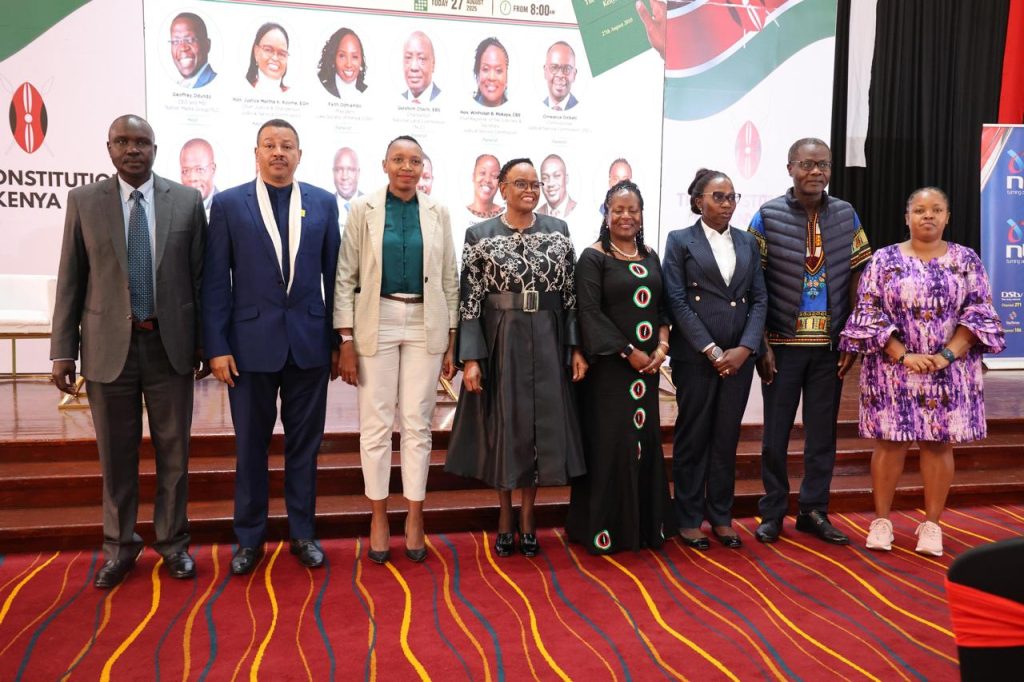
01:09:2025: The Ethics and Anti-Corruption Commission (EACC) joined other key stakeholders in commemorating the 15th anniversary of Kenya’s 2010 Constitution during the Katiba@15 event, hosted by the Nation Media Group at the Mövenpick Hotel in Nairobi. The Wednesday high-level forum brought together senior government officials, legal experts, civil society actors, and media representatives to reflect on the achievements, challenges, and future of constitutional governance in Kenya. The event was graced by Chief Justice and President of the Supreme Court, Hon. Martha Koome; Chairman of the National Land Commission, Gershom Otachi; and President of the Law Society of Kenya (LSK), Faith Odhiambo, among others. The EACC delegation was led by the Commission’s Director of Legal Services, Mr. David Too. He was accompanied by Directors Mr. John Lolkoloi (Ethics and Leadership), Mr. Jackson Mue (Field Services), and officers Regina Muriuki, Neema Mkorori, and Stephen Karuga. Participating in a panel discussion on ‘Safeguarding Integrity and Accountability under the Constitution’ alongside Gershom Otachi, Omwanza Ombati, and Cherimo Njoroge, Mr. Too noted that the EACC has made significant strides in promoting the rule of law, accountability, and good governance in line with Chapter Six of the Constitution. He, however, emphasized the need for enhanced collaboration among institutions and actors to fully realize the aspirations of the Constitution, particularly regarding integrity in public service. Chief Justice Martha Koome highlighted the Judiciary’s transformation since the enactment of the 2010 Constitution, reaffirming its commitment to equitable access to justice for all Kenyans. She praised the constitutional framework for strengthening judicial independence and accountability. LSK President Faith Odhiambo, in her remarks, called on citizens to remain vigilant in defending constitutional gains, warning that the principles of transparency and accountability remain under threat from entrenched interests. The Katiba@15 event served as a platform for renewed dialogue on the Constitution’s impact over the past decade and a half, and a call to action for all stakeholders to safeguard its vision moving forward.
Embu County partners with the Commission to strengthen anti-corruption efforts
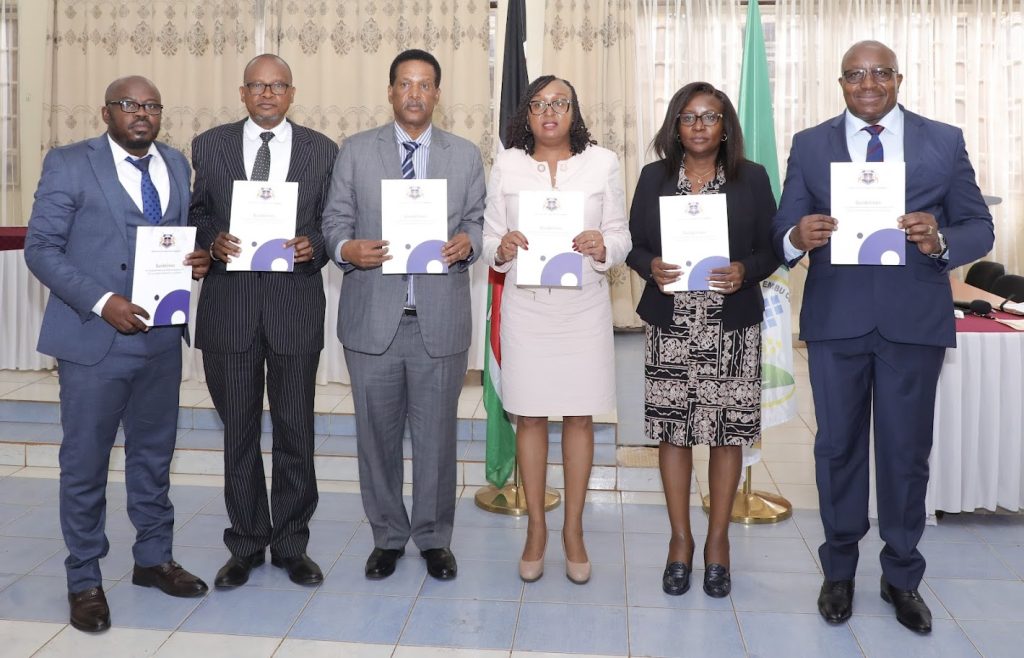
01:09:2025: The Commission has officially launched a strategic partnership with the Embu County Government aimed at intensifying the fight against corruption and promoting accountability in public service. The collaboration was unveiled on Thursday during a high-level event held at the Embu County Government Headquarters, which also marked the inauguration of Corruption Prevention Committees (CPCs). The event was presided over by EACC Commissioner Alfred Mushimba, alongside Embu Governor Cecily Mbarire and members of the County Executive Committee. Speaking at the launch, Commissioner Mushimba lauded Embu County for embracing the EACC’s efforts to foster institutional integrity, stressing that curbing corruption requires collective action. “EACC cannot win the war against corruption alone. Partnerships such as this are vital in safeguarding public resources for the benefit of citizens,” said the Commissioner. He further noted that corruption is most effectively tackled at the institutional level, where systems and structures can be strengthened to deter misconduct before it occurs. Governor Mbarire welcomed the partnership, pledging her administration’s commitment to transparency and ethical leadership. She emphasized the need for continuous support from the EACC, particularly in training county officials and enhancing capacity in resource management. “This partnership will bear fruit and bring real value to the public. With proper training and oversight, our officers will be better equipped to manage the resources entrusted to them,” said the Governor. The establishment of Corruption Prevention Committees follows the 2023 guidelines developed jointly by the EACC and the GIZ Good Governance Programme. The guidelines provide a systematic framework for forming and operationalizing CPCs as institutional tools for detecting, preventing, and mitigating corruption risks within public entities. The launch in Embu is seen as a significant milestone in Kenya’s broader efforts to embed integrity at the county level, and sets a model for other devolved units to emulate. The EACC has been actively engaging counties and public institutions nationwide to promote ethical governance and protect public resources through such localized mechanisms.
Kisumu residents benefit from EACC’s anti-graft sensitization
01:09:2025: Over 300 residents of Kisumu County have been sensitized on ethics and anti-corruption measures during a weeklong public education campaign spearheaded by the Ethics and Anti-Corruption Commission (EACC). The initiative, conducted through EACC’s Department of Education and Public Awareness, aimed to raise awareness about the impact of corruption and empower communities—especially the youth—to take a stand against unethical behavior. The sensitization activities included targeted programmes such as the Sensitization of Chiefs, a Public Outreach at Kisumu Huduma Centre, Youth Out-of-School Workshop, Youth Professionals Workshop, and a Faith-Based Organization Youth Workshop. The programmes were officially launched by Mr. Abraham Kemboi, EACC’s Central Nyanza Regional Manager, who challenged the youth to take an active role in fighting corruption. “Corruption is more than just an abstract term in headlines or political speeches. It’s the hidden ‘tax’ we all pay when public services fail, when opportunities go to the undeserving, and when systems collapse under the weight of dishonesty,” said Mr. Kemboi during the opening session. He emphasized the role of young people as change-makers, highlighting that ethical leadership begins with individual decisions. “Because change always begins with awareness, and sustainable change begins with you. The ethical choices you make today will shape the institutions of tomorrow,” he said, adding that . while corruption may seem like a problem far removed from your people’s daily lives, they are its most powerful counterforce. The campaign sought to instill integrity and civic responsibility among young people, fostering a culture of intolerance towards corruption and unethical conduct. In addition to the county-wide sensitization efforts, EACC also engaged with regional youth leadership during a special session of the East African Youth Parliament held at a Kisumu hotel. The Commission delivered a presentation on ethical decision-making in public administration, reinforcing the message of accountability and transparency in governance. The Kisumu outreach is part of EACC’s ongoing strategy to strengthen public participation in the war against corruption through education, awareness, and capacity building.
CEO champions ethical leadership in public service
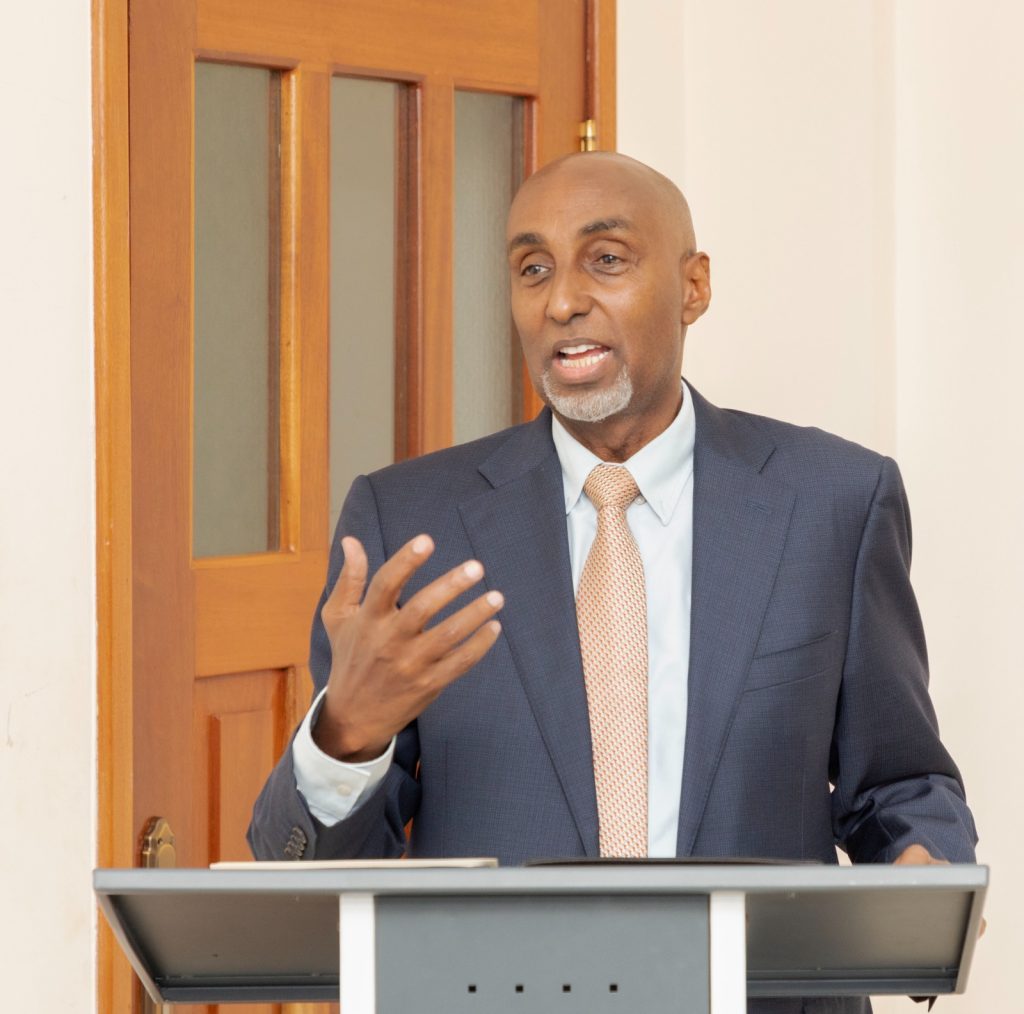
The Commission CEO, Mr. Abdi Mohamud, delivered a powerful and thought-provoking public lecture on Tuesday to senior civil servants currently enrolled in the Leadership Program for National Transformation. Addressing the cohort, Mr. Mohamud emphasized the critical importance of honesty, integrity, and servant leadership as foundational principles for effective public service. He noted that ethical leadership is not only vital to restoring public confidence in institutions but also essential for achieving sustainable national development. “Leadership is not about titles or power—it’s about service,” Mr. Mohamud said, adding that public institutions thrive when servants lead with integrity and are committed to the public good. The session was marked by active engagement, with participants sharing personal stories and ethical dilemmas they have faced in their professional journeys. These candid discussions provided a rare window into the moral complexities encountered in government roles and underscored the importance of making principled choices under pressure. Mr. Mohamud praised the participants for their transparency and courage, urging them to remain steadfast in upholding public trust. He reminded them that the fight against corruption begins with individual accountability and a firm commitment to doing what is right. “The transformation of our nation begins with each of us choosing integrity every day,” he said. The Leadership Program for National Transformation is designed to equip senior civil servants with the skills, mindset, and ethical grounding needed to lead effectively in an evolving governance landscape.
Former NCWSC ICT Assistant Fined KSh 14.6 Million for Fraudulent Acquisition of Public Funds
The Nairobi Anti-Corruption Court has convicted Lawrence Masinde Barasa, a former ICT Assistant at the Nairobi City Water and Sewerage Company (NCWSC), for fraudulently acquiring public funds amounting to Sh7,123,963 using a forged academic certificate. The judgment was delivered by the Nairobi Anti-Corruption Principal Magistrate Hon. Charles Ondieki, who found Barasa guilty on three counts relating to the fraudulent acquisition of public property, uttering a false document, and deceiving a principal. The court heard that Barasa had forged a Diploma in Information Technology certificate purportedly issued by the Eldoret Polytechnic, which he used to secure employment at NCWSC. Through this position, he unlawfully obtained over Sh7.1 million in salaries and benefits. In his ruling, Hon. Ondieki fined Barasa Sh100,000 for the first count of fraudulent acquisition of public property and imposed a mandatory fine of Sh14,347,926, equivalent to twice the amount illegally obtained, as provided for under the law. In default of paying these fines, Barasa will serve a total of two years’ imprisonment. On the second count of forgery, the accused was acquitted due to insufficient evidence. However, he was convicted on the third count of uttering a false document and fined Sh100,000 or serve one year in prison in default. For the fourth count of deceiving a principal, Barasa was similarly fined Sh100,000, with a default sentence of one year’s imprisonment. The court directed that all default sentences would run consecutively. Barasa was informed of his right to appeal both the conviction and the sentence within 14 days from the date of judgment.
